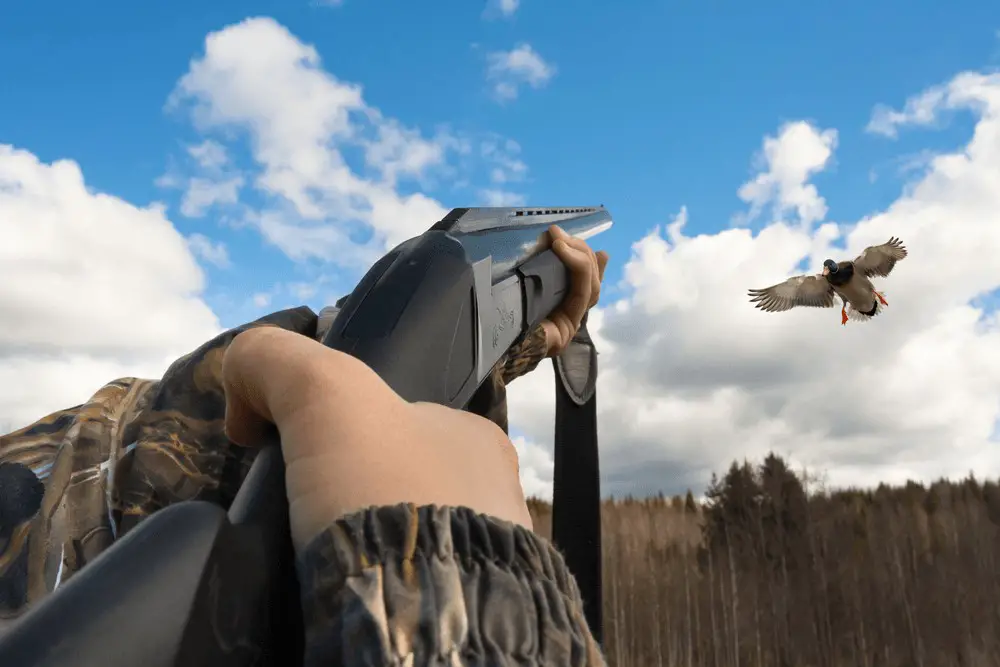
As the weather starts to chill, the ducks are going to start moving.
The wild world of waterfowl hunting will begin. Just as deer season has its dedicated followers, duck season draws its own fanatics. People who revel in the cold and wet to take on some of the most challenging hunting out there!
If you thought bagging a buck was tough, it takes real fortitude and skill to sit in the chill, damp pre-dawn when the water is frozen and still get off those perfectly timed shots.
Hundreds of neophyte hunters scrape by in deer season but those who hunt duck can’t stay a novice long. Never fear, we have just what you need to start out ahead of the curve!
1. Get Your Gear
Bowhunters are the most gear crazy people that most of us know. That’s because they are boisterous about the latest and greatest gear, their super-bow, and arrows so lethal they can kill with a glance.
Meanwhile, the more laid-back duck hunter will nod along thinking of all the gear it takes to bag a few birds. Sure, you can start on a budget and if this is your first season, you probably should but plan to spend some money if you want to advance in this sport.
Getting your gear squared away is the first step toward success.
Get the Right Gun
If it’s your first season, any decent shotgun may work to get you started but if you want to move forward, you need to get the right shotgun. Probably the right 12ga shotgun.
Most waterfowl hunters opt for an automatic with a few hanging on to over/under shotguns or pump guns. I would suggest an automatic for their faster firing rate and easier aiming. This will be your best bet to keep the kills coming in.
Once you have a gun you like you are going to need to get it set-up or fitted to you if you want to do your best. The most important aspect of a duck gun is the length of pull which, when properly fitted, will do wonders for your speed and maneuverability. A shotgun that is too long will be too slow.
The stock angle of the receiver, or ‘Drop at Comb’ and the recoil pad angle or ‘pitch’ goes a long way into making you a more accurate and more comfortable shooter. Getting these rights will determine your long-term success when you have to shoot upwards all day.
You can buy some higher end shotguns already fitted to your needs but most competent gunsmiths can modify any old favorite to be exactly where you want it.
Select the Right Load
Lead shot is out! Steel used to be the go-to but steel shot loses power drastically in the 40 to 50-yard range. Opt for an alloy shot in iron, tungsten, or bismuth to really reach out to farther away birds.
You will need a shot size that will be effective for your chosen fowl. For duck, you are looking at a #4 or #2 shot. Steel shot will have to be a #2 to be effective but you can go a little smaller with alloy shot.
For geese, stick with a #2. They are hard to knock down.
Get the Right Camo
Most birds have amazing eyesight, ducks definitely included! Always match your camo colors to your surroundings no matter if it’s a blind or camo clothing. Consider face paint or some other way to disguise your face. Use a gun wrap, especially on a shiny gun.
Concealment is key if you want to draw the birds in close.
Match Your Decoys
Mallard decoys are the cheapest and easiest to find. They are also the most commonly hunted duck in most states. But why risk missing a chance at a bird because you didn’t bring the right decoys?
Match the decoys to the birds you have seen in the area you are hunting. If you don’t know what ducks are there, at least opt to use a mix. A wood duck may not land on a pond full of mallards.
Don’t put your decoys out in the middle of still water. Opt for near shore or brush piles where a real duck would shelter. Many times, ducks will stray from areas where there is a line of decoys in the middle of a pond.
Don’t Skimp on Waders
The weather in waterfowl season flat out sucks! It’s cold, you are in the water, the dampness will get everywhere. Absolutely nothing will make your time more bearable than a quality set of waders.
Normally you can buy something that is budget and get buy but you need to get good waders at the very least. If you can afford great waders, that would be even better. It’s hard to focus on the hunt when you are freezing your cheeks off in a pair of damp pants.
Get your Waterfowl Stamp
Having a hunting license isn’t enough. You will have to pay for a waterfowl stamp to go with it. The extra fees go to conservation efforts to make sure your kids and grandkids can enjoy the same experiences you have.
Make sure you pay attention to the current regulations on waterfowl in your area. Unlike deer or other game, the regulations can change mid-season. If you don’t keep up with the newest versions you could be cited, fined, and lose your right to hunt.
2. Hone Your Skills
Once you have all your kit assembled, you are going to need to be proficient with it and all the skills associated with waterfowl hunting. Don’t go into the field unprepared, you will be met with disappointment or worse, you could get in legal trouble.
Knowing the ropes and being good with your equipment is the second step toward a successful season.
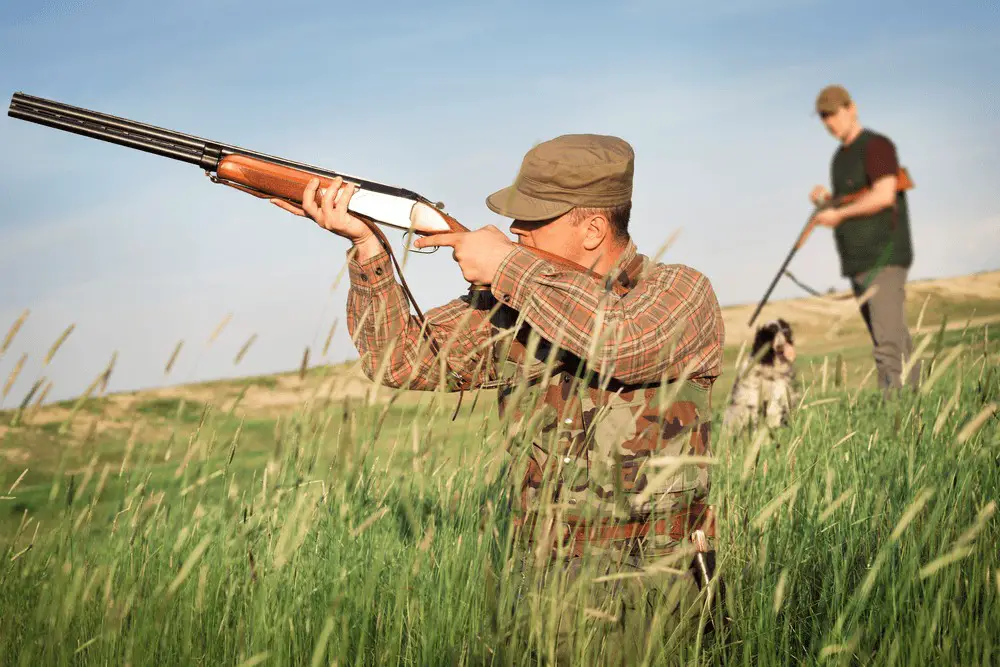
Get to Know Your Gun
Take your chosen load in your chosen gun and test the pattern. Play with different chokes to see what works best with your setup. See how it performs at different ranges. All of this will be very important in the field and you won’t have much time to think about it.
If you are using an over/under or an old side by side, make sure you know both barrels and have patterned both barrels to make sure they are consistent and that you can predict your shot pattern at various ranges.
Each automatic shotgun will have a slight difference in the time it takes to cycle between shots. Most of the time this will make little difference but it’s something you should be aware of.
Clay and Trap Practice
After you have your shotgun down pat it’s time to get some real practice! Head to your local shooting club if you have one and try your hand at both trap and skeet shooting. You will need these real-world skills once you get on the water.
Trap shooting has clays that are thrown away from you at various angles. This will help you get the hang of rising and falling targets and is far easier to learn your shot pattern and lead distance.
After that, move on to the world of skeet shooting. Now the clays will be flying across and you will have to really nail down your lead distance and timing. Without a doubt, this is the best way to get the hang of your shotgun and get ready for the real thing.
Knowing how far to lead a bird isn’t enough. It needs to be an instinct. Things happen fast in duck season, especially when there is more than one hunter in the area. Each shot needs to be taken in confidence and without thought if you want to bag your limit.
If you don’t have a range close, its worth the time to travel. Not only is it great practice but a fun and rewarding hobby on its own.
Know Your Duck Species
This is vital! If you plan to hunt waterfowl you have to know the difference between the species and sexes or you could be in real trouble. Each species will have different bag limits and each sex of that species may vary as well. Not getting this right could get you fined!
Even worse, some game fowl may share the same waters as endangered or protected bird species. Killing them can be a federal issue and you could use your right to hunt altogether.
Know your birds and never shoot if you aren’t sure.
3. Where to Duck Hunt
Fact 1 about duck hunting: You aren’t going to bag any if you aren’t where the birds are. Knowing where to hunt and scouting ahead to make sure there are huntable fowl will be your third step to success in the field.
You need a plan and know where you are hunting. Most newcomers to the sport will stick to public lands which can have a lot of hunting pressure and be a waste of time. You need backup options and contingencies if you want to make every trip successful.
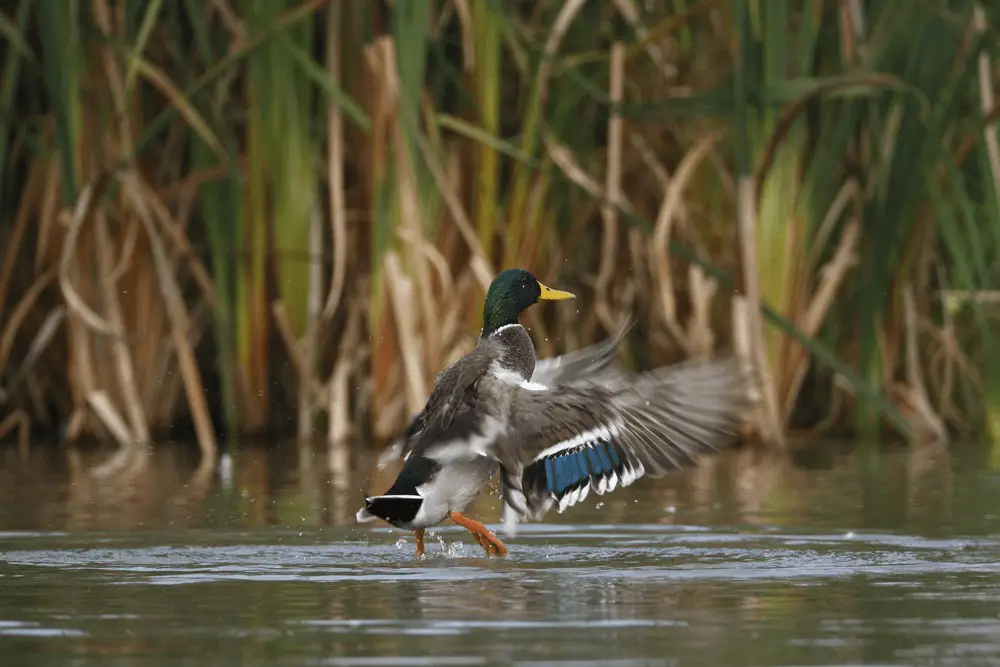
Play the Long-Term and Short-Term Game
A long-term game is to scout a few larger areas to know that ducks are in the vicinity and likely have a good idea of where in those areas will be productive. This may be as simple as knowing you are hunting along a couple miles of a specific river or on a certain lake.
Knowing regions on the water body that are likely to hold ducks and securing hunting access to those regions if they are private should be a part of your long-term plan.
The short-term plan is knowing what your first-choice areas are and when and where to move if the birds dry up. If one area is over hunted, it’s time to pick the next area on your list. Usually this will be either on the same body of water or very close by.
Scout Coves, Points, Marshes and Creeks
In the early part of the season, ducks may congregate most anywhere but those first few days are the easy ones. Where there were hundreds of ducks the morning of opening day there will be none to be seen by day 3. If you want to get duck, you must get away from hunters and that means going where most people won’t.
Look for brush covered points, the backs of deep coves, pools far up creeks away from where most hunters go, and the worst swampy and marshy areas you can find. When the pressure is on, this is where duck will come for shelter from hunters.
It pays to have mapped out these areas beforehand and have a plan to get there.
Keep the Sun on your Back and the Wind at your Side
Sun position is vital! You don’t want to have to look into the sun to try to get a shot at a duck. That blinding effect works both ways though. If you put the sun at your back, the Duck will be partially blinded as they come into land, giving you precious seconds to get your shot off.
Likewise, keep the wind on your left or right side. Ducks will almost always land into the wind. If that is facing toward you, they will be looking right at you when you are about to take your shot.
Of course, having a duck flying straight from left to right is a tricky shot and sometimes the sun and the wind don’t cooperate. My true preference is to have the wind blowing 45 degrees between my back and side. I call it blowing over my shoulder and the right shoulder tends to be my favored one.
Food and Pressure
The two main driving forces that will keep ducks in place or make them move will be food and fear of hunters. This is especially true after the first few weeks when they are getting tired of being shot at.
Knowing what ducks are eating and where is fine but knowing where they are hanging out for safety is even better. In situations like that, your decoys can be very effective and you can get a small pond loaded with birds. Usually, this will be in about the hardest to reach place you can find.
Concealment
Ducks have amazing eyesight, most birds do. We talked about the importance of camo above but that probably won’t be enough. Use a blind or at least tall cover to break things up and keep you hidden until you are ready to take your shot.
When you do take your shot, you will break your concealment so make it quick and decisive. Don’t linger or you may miss your opportunity.
4. When to Duck Hunt
Fact 2 about duck hunting: No one bags a duck from their bed and morning is the undisputed best time to hunt so rise and shine! It’s time to get out on the water!
That is not to say that morning is the only time to hunt. Evenings are also productive in the last couple of hours before dark and midday can even yield a few ducks. Still, your best shot is to hunt in the A.M. as things start to warm.
No matter the pointers below, let the ducks tell you when to hunt. If they are active, stay on the water.
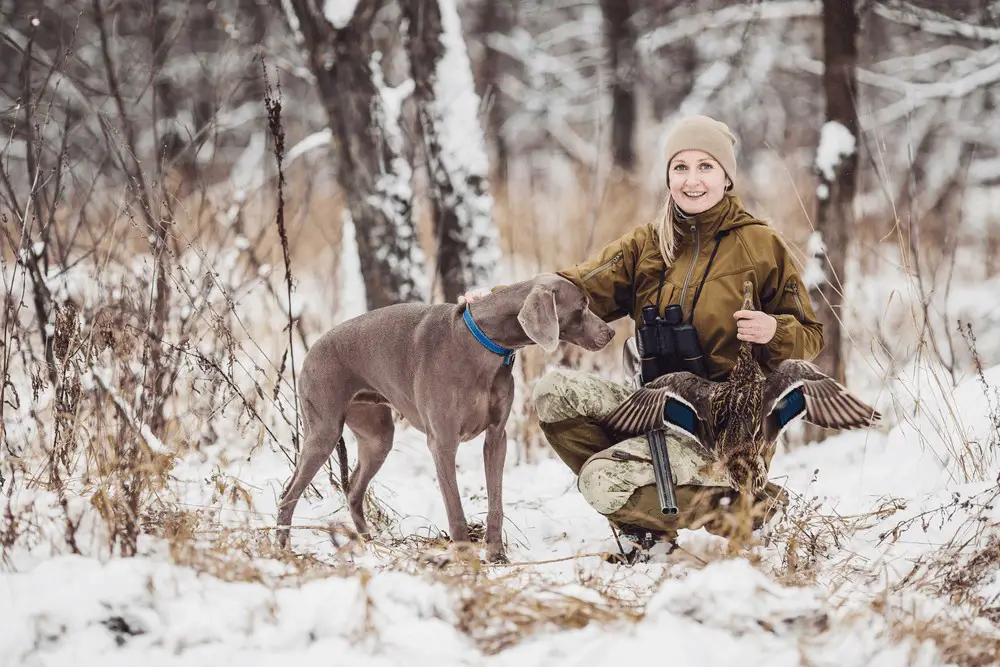
Wait Until Sunrise
Most people head out to their blinds before first light. In some places, this may work but if you have a good spot and you are right on the water, wait a little later to head in. Not too late. I like to get there right as the sun breaks.
If you go in too early, you are likely to scare any ducks off their roost as you tromp through the weeds before you can even see enough to get a shot. Those birds will likely not land anywhere worth hunting for a while.
Secondly, Birds often follow the warm weather in. Getting there right at dawn you are more likely to find ducks leaving than ducks coming in. Ducks are active from about an hour before sunrise to a couple of hours after.
The most hunting pressure will be the first hour. Those ducks will move away. The ducks you want are the ones that are just coming into an area, not the ones that are already cautious.
Don’t Leave Your Blind Early
This goes with the point above. The time most active for ducks is just after sun up. If you are one of those hunters who get in at sunrise and hunts for two hours, you may be missing some good opportunities. Stick around an extra hour or so.
Hunt the Weather
Ducks are very active when it’s cold and windy and at weather changes. They will often move ahead of weather fronts. These ducks will be new to an area and not aware of hunters. Hunting just as a warm front comes in can be some of the best duck hunting you can have!
Ducks will be lethargic if the temps are above the seasonal norm, preferring to rest in any water they can find. Usually, this is an unproductive time but if you can catch them in the morning before it has a chance to warm up, you may get lucky!+
5. Taking Your Shot
If you made it this far you have the gear and you know how to use it. You found the ducks are just waiting for them to present themselves. It’s time to get ready for the fun part! It’s time to bag a few birds!
All birds scare easily. If you don’t want to spook them or miss your opportunity. Let’s conclude with a few tips to put you on target.
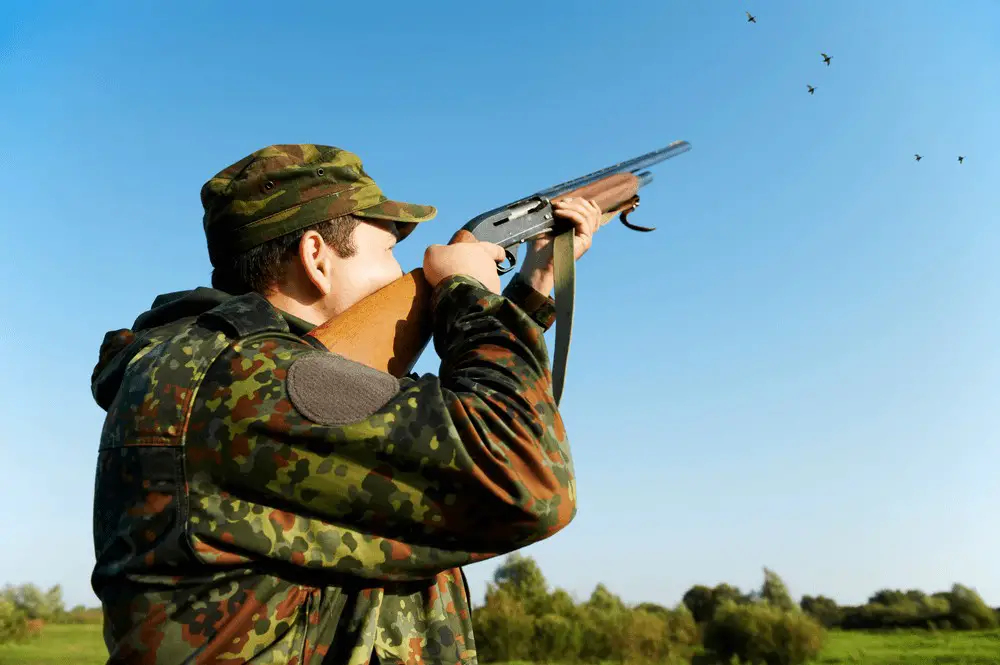
Take Your Time
Rushing shots is one of the most common mistakes in all forms of hunting but much more devastating with birds that are easy to miss and are gone when you do.
You will have a limited amount of time to bag your bird but don’t get too trigger happy. Make sure you are on target and ready before you let shot fly.
Go for the Trailing Bird
Most every hunter will be after the lead duck and all it takes is a double hit on a single bird to start a fight and ruin a day of hunting. As the flock comes in, aim for the last duck in the line. You will have more time to set up your shot and most other people won’t be shooting at it.
Don’t Shoot at the Crowd
It’s a common mistake for a new hunter to fire blindly into a flock of ducks. I think it’s more a panic reaction than a planned strategy. People that do that are called Skybusters and you definitely don’t want to be one. Pick your target and aim at him alone, don’t shoot into the flock. Your odds will be better and you won’t ruin any friendships.
Aim for the Head
You have to lead a duck to begin with so start as far forward as you can. It will give you a little more leeway. Many times, I have thought I had a duck center mass but took out his tail feathers instead.
If you can see his eye, make that your point of focus as you bring your shotgun up to bear. Not only will this help keep you from shooting blindly into a pack but it will give you a better chance of a solid hit.
Keep the Swing Going
As you swing your shotgun to get your lead right and take your shot, don’t stop the swing until you are well past the point you pulled the trigger. Often people will accidentally stop the gun early and shoot yards behind their target. It takes time to stop a shotgun so don’t worry about it until you have fired and hopefully brought down your game.
In Closing
Though duck hunting is among the most challenging hunting you can do in terms of weather, skill, and knowledge, it is also among the most rewarding. It will make you a better hunter in all other aspects of your outdoor life. The skills it takes to get on a duck and bring him down are universally good skills to have.
You may have to spend a little money and you will have to put in some effort. There may be some cold miserable days ahead. But none of that will matter the first time you see a beautiful mallard topple from the sky after a single, well-executed shot.

My son and I are thinking that it would be a good idea to go duck hunting this summer, but we’ve only ever hunted deer before. I appreciated the tip you shared about how it is a good idea to avoid getting trigger happy. Hopefully, we will be able to have a successful trip this summer due to your advice.